Filter by
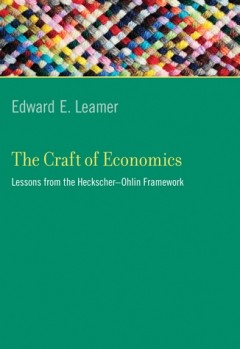
The craft of economics :lessons from the Heckscher-Ohlin framework
In this spirited and provocative book, Edward Leamer turns an examination of the Heckscher--Ohlin framework for global competition into an opportunity to consider the craft of economics: what economists do, what they should do, and what they shouldn't do. Claiming "a lifetime relationship with Heckscher--Ohlin," Leamer argues that Bertil Ohlin's original idea offered something useful though vag…
- Edition
- -
- ISBN/ISSN
- 9780262301589
- Collation
- 1 online resource (ix, 196 pages) :illustrations.
- Series Title
- -
- Call Number
- -
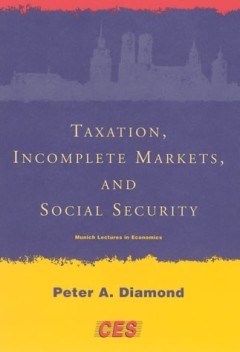
Taxation, Incomplete Markets, and Social Security
In this book, Peter Diamond analyzes social security as a particular example of optimal taxation theory. Assuming a world of incomplete markets and asymmetric information, he uses a variety of simple models to illuminate the economic forces that bear on specific social security policy issues. The focus is on the degree of progressivity desirable in social security and the design of incentives t…
- Edition
- -
- ISBN/ISSN
- 9780262271684
- Collation
- 1 online resource (xviii, 160 pages).
- Series Title
- -
- Call Number
- -
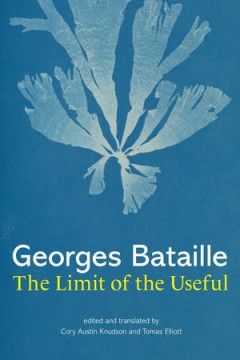
The limit of the useful
Originally published as "L'?economie ?a la mesure de l'univers," "La Limite de l'utile," "Notes pour L'?economie ?a la mesure de l'univers," and "Notes pour La Limite de l'utile" Editions Gallimard, Paris, 1976.""The first English translation of key texts by Georges Bataille pertaining to The Accursed Share that also map out his transition from "dissident surrealist" to systematic thinker"--OCL…
- Edition
- -
- ISBN/ISSN
- 9780262371360
- Collation
- 1 online resource
- Series Title
- -
- Call Number
- -
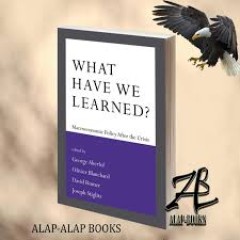
What Have We Learned?: Macroeconomic Policy after the Crisis
Since 2008, economic policymakers and researchers have occupied a brave new economic world. Previous consensuses have been upended, former assumptions have been cast into doubt, and new approaches have yet to stand the test of time. Policymakers have been forced to improvise and researchers to rethink basic theory. George Akerlof, Nobel Laureate and one of this volume's editors, compares the cr…
- Edition
- -
- ISBN/ISSN
- 9780262323444
- Collation
- 1 online resource (vii, 359 pages) :illustrations
- Series Title
- -
- Call Number
- -
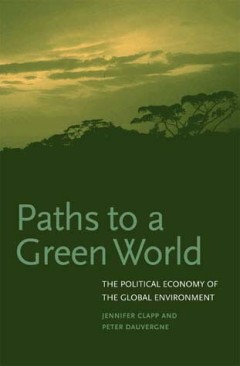
Paths to a green world :the political economy of the global environment
This comprehensive and accessible text fills the need for a political economy view of global environmental politics, focusing on the ways key economic processes affect environmental outcomes. It examines the main actors and forces shaping global environmental management, particularly in the developing world. Moving beyond the usual academic emphasis on international agreements and institutions,…
- Edition
- -
- ISBN/ISSN
- 9780262270403
- Collation
- 1 online resource (xxi, 327 pages) :illustrations
- Series Title
- -
- Call Number
- -
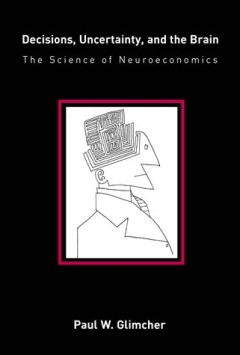
Decisions, Uncertainty, and the Brain: The Science of Neuroeconomics
"A Bradford book."In this provocative book, Paul Glimcher argues that economic theory may provide an alternative to the classical Cartesian model of the brain and behavior. Glimcher argues that Cartesian dualism operates from the false premise that the reflex is able to describe behavior in the real world that animals inhabit. A mathematically rich cognitive theory, he claims, could solve the m…
- Edition
- -
- ISBN/ISSN
- 9780262273930
- Collation
- 1 online resource (xx, 375 pages) :illustrations
- Series Title
- -
- Call Number
- -
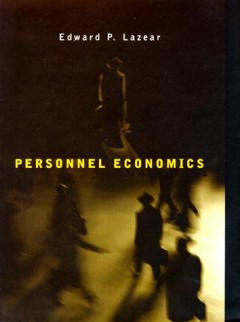
Personnel economics
Contrary to popular opinion, human resources, in general, and personnel, in particular, are well-suited to economic analysis. Edward Lazear, who founded the subfield of personnel economics, provides a quick introduction for economists who have not studied the area. Contrary to popular opinion, human resources, in general, and personnel, in particular, are well-suited to economic analysis. Ed…
- Edition
- -
- ISBN/ISSN
- 9780262278027
- Collation
- 1 online resource (170 pages) :illustrations.
- Series Title
- -
- Call Number
- -
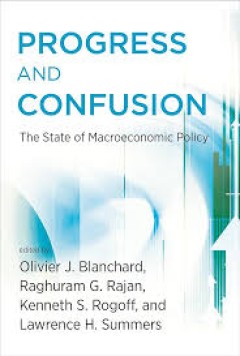
Progress and confusion the state of macroeconomic policy
Leading economists consider the shape and future of economic policy: Will it resume the pre-crisis consensus or contend with the post-crisis "new normal"? Have we made progress with addressing the major issues or does confusion remain in today's economic environment? Chapters address topics that range from the measurement of systemic risk to foreign exchange intervention.OCLC-licensed vendor bi…
- Edition
- -
- ISBN/ISSN
- 9780262333450
- Collation
- 1 online resource (vii, 304 pages) :illustrations
- Series Title
- -
- Call Number
- -
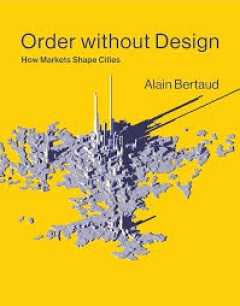
Order without design how markets shape cities
"This book emerges from a 55-year career in urban planning, and is illustrated by the author's real-world experience. Without understanding how markets work, urban planners are likely to design infrastructure and regulations that will adversely impact the functioning of cities. By contrast, urban economists review decisions and outcomes after the fact, often publishing their conclusions in spec…
- Edition
- -
- ISBN/ISSN
- 9780262349215
- Collation
- 1 online resource.
- Series Title
- -
- Call Number
- -
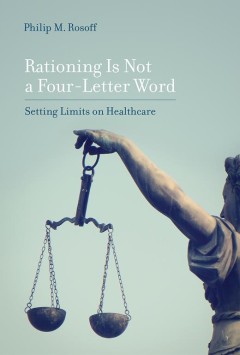
Rationing is not a four-letter word : setting limits on healthcare
"Most people would agree that the healthcare system in the United States is a mess. Healthcare accounts for a larger percentage of gross domestic product in the United States than in any other industrialized nation, but health outcomes do not reflect this enormous investment. In this book, Philip Rosoff offers a provocative proposal for providing quality healthcare to all Americans and controll…
- Edition
- -
- ISBN/ISSN
- 0262320762
- Collation
- 1 online resource (xiv, 320 pages).
- Series Title
- -
- Call Number
- -
 Computer Science, Information & General Works
Computer Science, Information & General Works  Philosophy & Psychology
Philosophy & Psychology  Religion
Religion  Social Sciences
Social Sciences  Language
Language  Pure Science
Pure Science  Applied Sciences
Applied Sciences  Art & Recreation
Art & Recreation  Literature
Literature  History & Geography
History & Geography